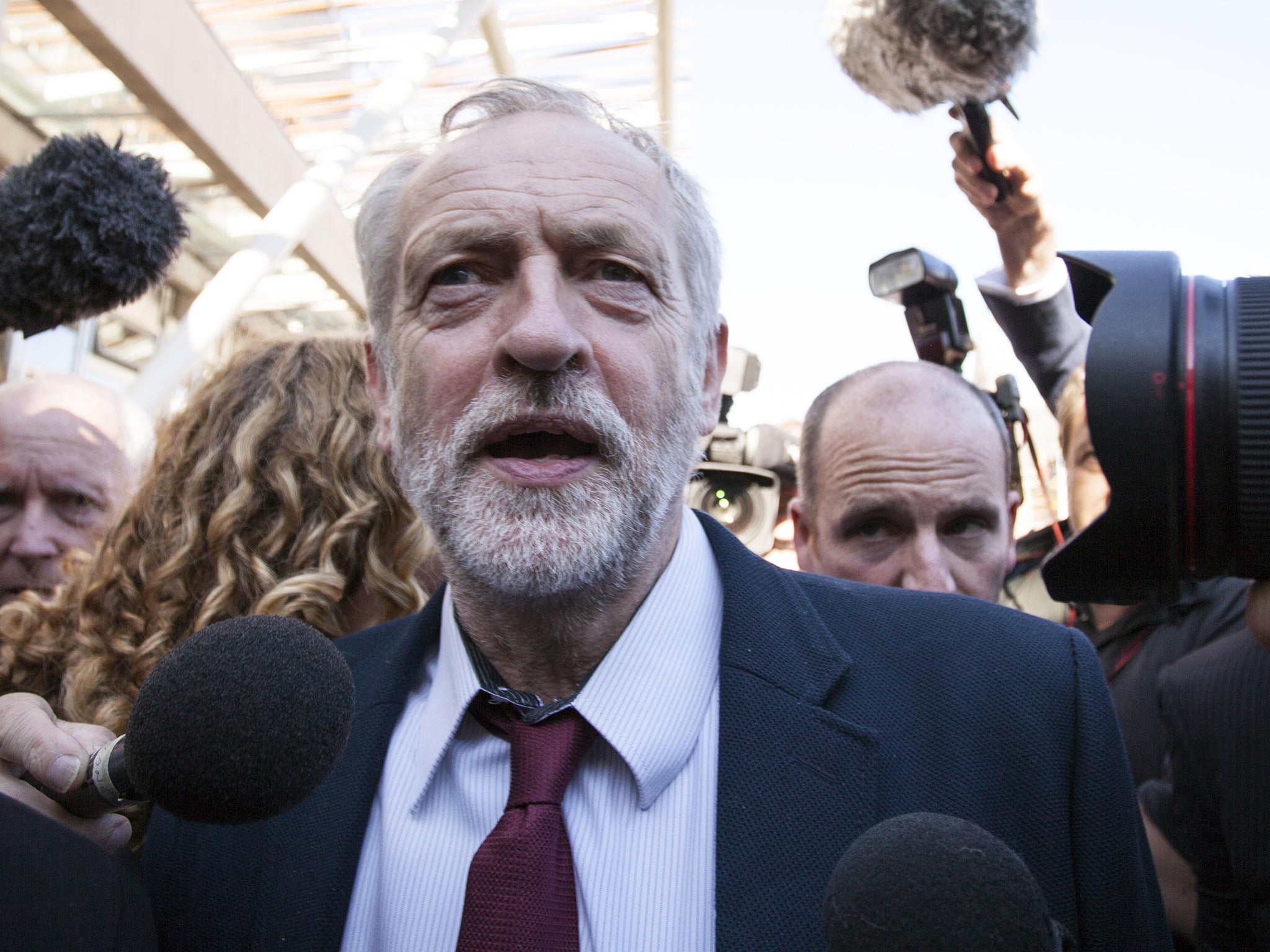Jeremy Corbyn: What a pity Labour's new leader is a tongue-tied republican
While refusing to sing the National Anthem, he stood like a sulky sixth-former, causing great and needless offence

Some years ago, I was a guest at a literary dinner in a central London hotel. Towards the end of the evening, we were asked to stand for something called the “loyal toast” and raise our glasses to the Queen. Since I’m a republican, I remained quietly in my seat and was surprised when some of the people sitting at my table hissed at me to get up. I was even more surprised when a waiter appeared and pulled my chair from under me, tipping me on to the floor.
It has never been easy to be a republican in the UK. The monarchy is entwined in the nation’s political institutions to a degree that denies individual freedom and undermines democracy, a fact confirmed by the way in which the leader of the Labour Party is referred to during parliamentary business. I’m sure Jeremy Corbyn hates it, but he’s currently the Leader of Her Majesty’s Official Opposition. The job comes with an additional salary on top of what he’s paid as an MP and an expectation that he will become a member of that most archaic and undemocratic of institutions, the Privy Council.
These titles are anything but harmless, putting a gloss on what’s really a species of coercive conformity; the constitutional difficulties they present for a committed republican are obvious and unavoidable. If I were in Corbyn’s shoes, braced for an onslaught from the right-wing press, I would have asked myself a series of questions before the result of the leadership ballot was even announced. Am I willing to sing the National Anthem? What will happen if I don’t? Am I willing to genuflect before the Queen and kiss her hand? If the answer is no, how do I seize the initiative and start a conversation about democracy and values?
One thing a Labour leader could do, at this point, is make a virtue of consistency. He or she (I live in hope) could say that public trust in politicians is low precisely because they stand accused of lacking principles. He could argue that he’s a different kind of politician who stands by commitments he made in the past, even if the result is a temporary burst of unpopularity. He could say that constitutional change isn’t among his top priorities, but he’s not prepared to pretend to be something he isn’t. He could say almost anything, in fact, and the outcome is unlikely to be worse than Corbyn’s failure to say anything at all.
Only three days after becoming leader, he flunked his first test. It’s hard to think of a worse occasion to challenge the central role of the monarchy in public ceremonies than a Battle of Britain memorial service; a refusal to sing the National Anthem, unless it was carefully explained in advance, was always likely to be interpreted as an insult to the families of thousands of young men who died defending their country.
Corbyn could have been bold and set out the principles that would govern his public appearances. He could have used the occasion to speak about the evils of fascism, and the right of people in free countries not to mouth words they don’t believe in. Instead he stood in silence like a sulky sixth-former, causing great and needless offence.
Smart politicians learn from their mistakes. Last week’s meeting of the Privy Council, when Corbyn was due to be sworn in, was an opportunity to demonstrate that his handling of the Battle of Britain service was an aberration. He had a number of options, from politely but clearly refusing the invitation to publishing a reasoned explanation of the ways in which the Privy Council makes a mockery of this country’s commitment to equality. What he actually did was disappear for a few days, apparently on a trip to Scotland, leaving a member of the Shadow Cabinet to make the lame excuse that no one had “explained what actually happens” at the Privy Council.
What is at issue here isn’t Corbyn’s patriotism or the nonsensical claim by David Cameron that he hates this country; it’s whether he is a serious politician who’s interested in changing people’s minds or just the leader of a protest movement. Republicanism isn’t an easy case to make in the UK but that’s only because it’s never been done by a heavyweight politician; those on the left are terrified of appearing to criticise the Queen, so they put up with institutions and customs that would cause outrage in other democratic countries.
I can’t imagine President Obama or Angela Merkel shuffling about on their knees as though it’s part of the democratic process, and there’s no reason why Corbyn should if it goes against his principles. From any sensible perspective, there’s a chasm between what our MPs have signed up to in laws and treaties and the edifice of inherited privilege enjoyed by the Royal Family.
I’ve always longed to hear centre-left politicians call out the nonsense that goes along with the monarchy, but I also understand why they are reluctant to do it. Now we appear to have the worst of all worlds: a tongue-tied republican in charge of the Labour Party.
Join our commenting forum
Join thought-provoking conversations, follow other Independent readers and see their replies
Comments